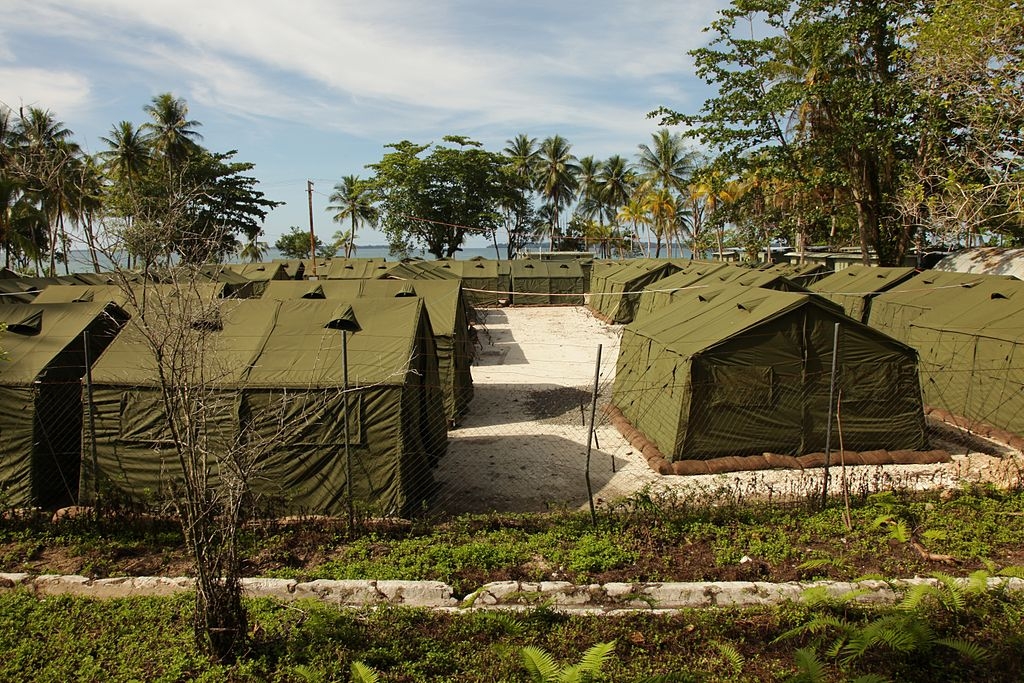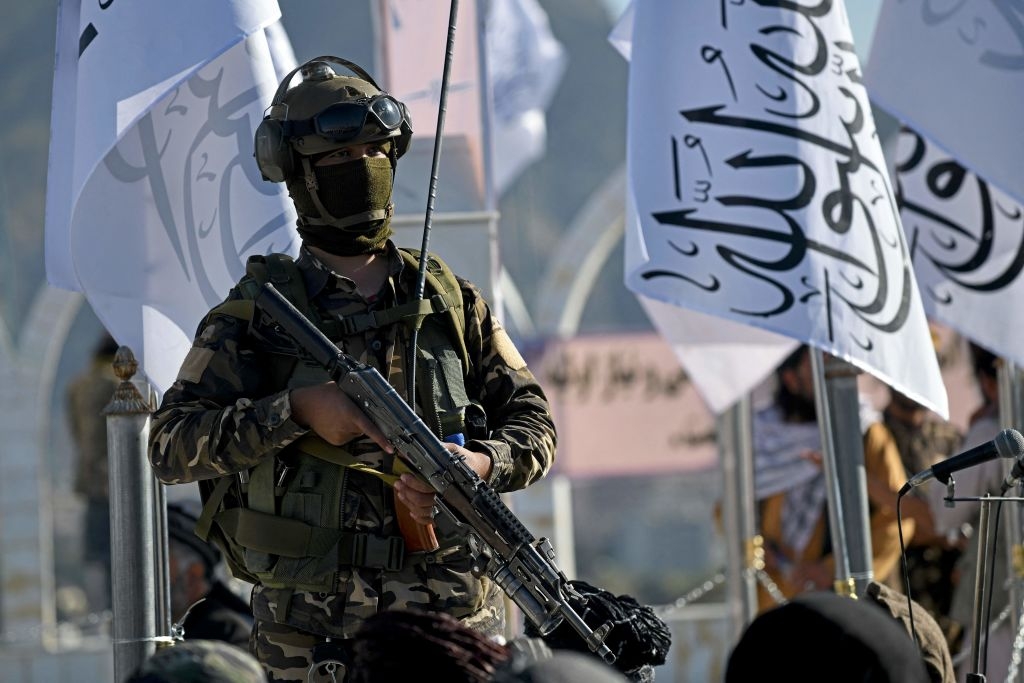by Dr. Mordechai Kedar
I would like to raise a few pointed questions at the start of this article:This article is not about how Israelis feel. It is about why the Arab world is not taking up the Palestinian Arab struggle.
Why doesn't the Arab world make an all out effort to free "Falestin" from the Jews and give it to the Palestinian Arabs?
How come the Arab world, most of which has not recognized Israel's right to exist - goes on about its business, despite the fact that two major countries, Egypt and Jordan, have made peace with Israel? Why doesn't it boycott those two countries, except for the short period during which Egypt was ousted from the Arab League?
Why hasn't the Arab world waged a total war against Israel for the last 44 years - that is,since 1973?
Why did the Iraqis expel the Palestinians from Iraq after the fall of Saddam Hussein in 2003?
Why did the Egyptian regime persecute the Gazan Palestinians? Is it a political struggle against Hamas or does it signal something deeper?
Why did all the sides fighting one another in Syria - Assad, Hezbollah, the rebels, Islamic State - behave with such cruelty to the Palestinians living in refugee camps in Syria?
Why do the Arabs continue to keep the Palestinians in refugee camps?
Why, over the past 68 years, haven't the Arab countries, except for Jordan, granted citizenship to the refugees within their borders?
These are only a few of the questions that can be raised regarding the antipathy of the Arab nations and the Arab people to the so-called "Palestinians" - despite the constant mantras of "Arab unity" and "Arab solidarity". The only explanation which answers most of the questions asked above is that the Arab world's treatment of the "Palestinians" is the result of some deep seated negative feelings about them which no one is willing to reveal, let alone discuss.
The must-not-be-mentioned feeling regarding the Palestinian Arabs is that they themselves are responsible for all the sufferings brought upon them by Israel. Even prior to 1948 (when Israel declared its statehood) they lost the battles that were supposed to have rid them of the Zionists. Why? Because they were not united, were disorganized and because some of them did not participate in the struggle and some of them even cooperated with the Zionists.
The second negative feeling is based on the well-known fact that many of these Palestinian Arabs sold lands to Jews way before 1948 and continued to do so afterwards, including lands in Judea and Samaria after Israel "occupied" those areas in the June 1967 Six Day War. Palestinian Arabs sold land to Jews for billions, took the money out of the country, some of them depositing their riches in numbered Swiss bank accounts, and are now wailing to the Arab world to free their "stolen lands" for them.
This is most conspicuous in Jerusalem, the city in which Arab residents sold land, homes and apartments to Jews and are now complaining about the "Judaization of Jerusalem."
Arafat is another reason for Arab anger. His support for the 1990 Iraqi invasion of Kuwait under the Saddam Hussein regime caused the expulsion of many thousands of workers from Kuwait's oil industry, and everyone knew quite well why that happened. Many Arabs also understood that Arafat always wore the same military uniform because its many pockets contained slips of paper with the first names of those in whose hands he had placed millions taken from money meant for aid. The day Arafat died, they all became instant millionaires, and no one has any idea how much money Arafat handed each of them.
A third unpleasant feeling results from the fact that these very same Palestinians earned large sums of money working to build communities built by Jews since 1948, both within the "Green LIne" (1949 Armistice lines) and in the post-1967 "occupied territories." They are the ones who built the State of Israel, literally. Palestinian Arabs are employed in industries established by Jews in all these areas, they purchase the products manufactured by Jews and contribute to the expanding Israeli economic presence in the "occupied territories."
A fourth nasty feeling about the Palestinians is the Arab world's knowledge that the UN has been helping the "Palestinian refugees" since 1948 most generously, mostly by way of UNRWA, granting them more funding than is given to the all the other refugees in the Arab world today - in Syria, Sudan, Jordan, Iraq and Turkey - combined. Many Arabs feel that the Palestinians use extortion to blackmail the world's conscience and obtain large sums from its dwindling financial resources, so that not enough is left for the real refugees, those from Syria or Iraq, for example, who are desperately in need of UN aid.
The fifth uneasy feeling about the Palestinians surfaced at the start of 2011, when the "Arab Spring" broke out and brought down the regimes of Mubarak in Egypt, Qaddafi in Libya, Tsalach in Yemen and placed Assad's rule in danger. Many Arabs expected the Palestinians to take advantage of these events to begin a real uprising that would get rid of the Israeli "occupation." This did not occur. The Palestinians placidly watched their fellow Arabs streaming into the streets, filling the squares, demonstrating in the public arena and turning the tables on established rulers. They watched the events via the media while munching on sunflower seeds, the Middle Eastern equivalent of popcorn, but did nothing. The Arab man on the street asks: What are the Palestinians waiting for? For Israel to become stronger? For the Arab world to become weaker and even more divided against itself?
And- worst of all -- there is a feeling in the Arab world that the Palestinians prefer to continue under Israel "occupation" because they have so much to gain, especially economically, from its continued existence.
In conclusion, the Palestinian's image in Arab media has fallen to an unbelievable and unprecedented low. There is not one Arab country today willing to be endangered by fighting for them. And I will not be surprised if other Arab countries (Morocco, Tunisia and the Emirates, for example) recognize Israel in the near future, whether or not there is a negotiated agreement between Israel and the Palestinians.
Written for Arutz Sheva, translated by Rochel Sylvetsky
Dr. Mordechai Kedar is a senior lecturer in the Department of Arabic at Bar-Ilan University. He served in IDF Military Intelligence for 25 years, specializing in Arab political discourse, Arab mass media, Islamic groups and the Syrian domestic arena. Thoroughly familiar with Arab media in real time, he is frequently interviewed on the various news programs in Israel.
Source: http://www.israelnationalnews.com/Articles/Article.aspx/20123
Follow Middle East and Terrorism on Twitter
Copyright - Original materials copyright (c) by the authors.



